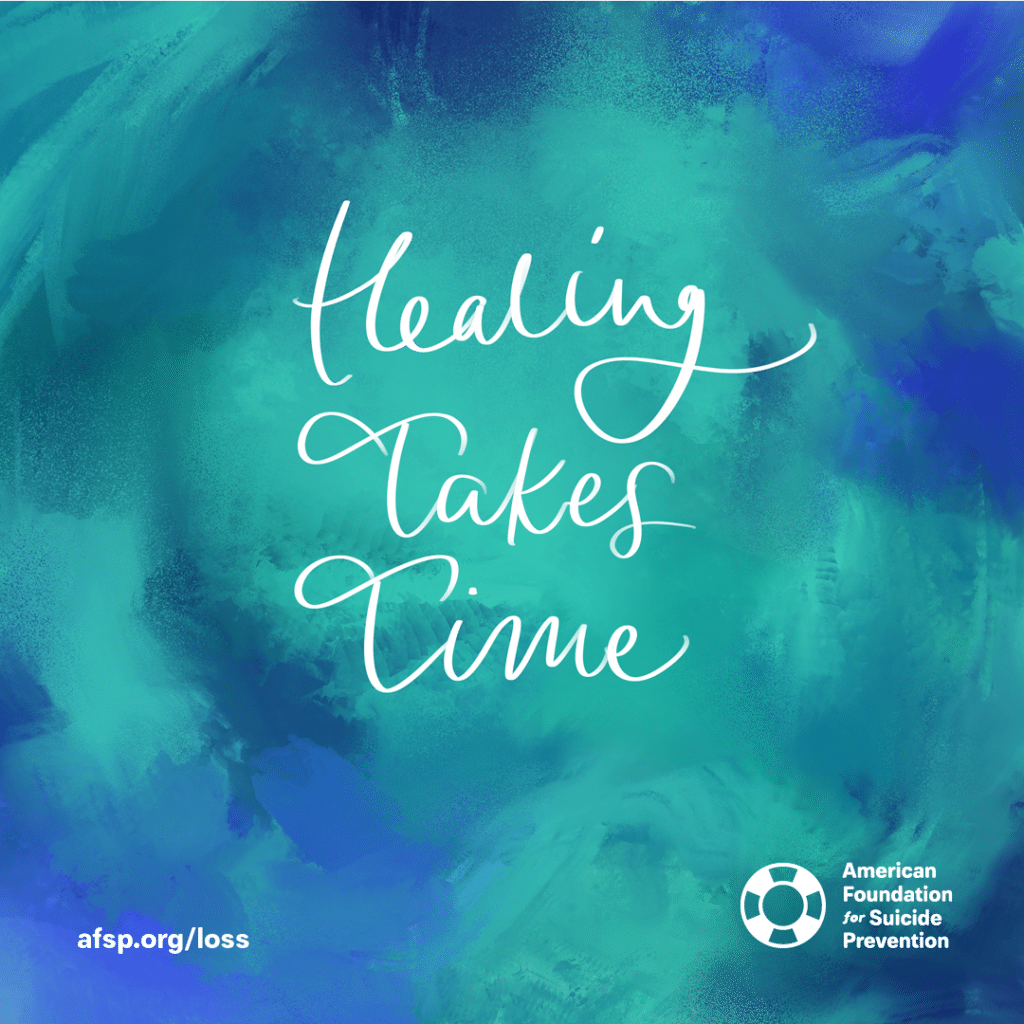Today is International Survivors of Suicide Loss Day. In 1999, Senator Harry Reid, who lost his father to suicide, introduced a resolution to the United States Senate, leading to the creation of International Survivors of Suicide Loss Day. Also known as Survivor Day, the day was designated by the United States Congress as a day on which those affected by suicide can join together for healing and support. It was determined that Survivor Day would always fall on the Saturday before American Thanksgiving, as the holidays are often a difficult time for suicide loss survivors.
Understanding suicide and the thought process behind it can be useful in dealing with your grief as a survivor of suicide loss. Knowing the risk factors is an important first step. These risk factors include:
- Mental disorders, particularly mood disorders, schizophrenia, anxiety disorders, and certain personality disorders
- Alcohol and other substance use disorders
- Hopelessness
- Impulsive and/or aggressive tendencies
- History of trauma or abuse
- Major physical illnesses
- Previous suicide attempt(s)
- Family history of suicide
- Job or financial loss
- Loss of relationship(s)
- Easy access to lethal means
- Local clusters of suicide
- Lack of social support and sense of isolation
- Stigma associated with asking for help
- Lack of healthcare, especially mental health, and substance abuse treatment
- Cultural and religious beliefs, such as the belief that suicide is a noble resolution of a personal dilemma
- Exposure to others who have died by suicide (in real life or via the media and Internet)
What is suicidal ideation?
Suicidal ideation is when someone thinks about killing themselves. These thought patterns may or may not include a plan to die by suicide.
How can suicidal ideation be treated?
Finding a licensed professional to help create the right treatment plan can help with things like:
- How severe suicidal thoughts are
- How often these occur and how long they last
- How detailed or extensive they are
Treatment plans can include a safety plan, talk therapy, medication, and even hospital care if the treatment team deems that necessary.
Safety Plan
A doctor or therapist will assist in creating a specific crisis response plan to help. This plan can include:
- How to spot things that trigger negative or suicidal thoughts
- Coming up with healthy coping mechanisms, such as mediation, music therapy, or exercise
- Identifying a support system that can be reached out to when support is needed
- How to make a physical environment a safer space in the event of extreme distress
Individual Therapy
Talking with a licensed mental health professional can help to learn how to take charge of negative or suicidal thoughts. Dialectical behavioral therapy can be extremely effective against suicidal ideation and negative coping skills.
Medication
Finding a psychiatrist who will work to find the right medication to supplement a treatment plan can help with daily thoughts of suicide. This process can take some time and it might take a few tries to find the right dosage. Never stop taking any medication, especially psychiatric medication, without consulting a medical professional first.
Hospital Care
If a treatment team is worried about the severity or frequency of someone’s suicidal ideation, they might recommend stabilization in a hospital setting. This is primarily for a short-term stay to help keep them safe.
“I’m worried about my loved one – what warning signs can I take note of?”
It’s impossible to always know what someone else is thinking. It’s important to note behaviors that may be troublesome, especially if these behaviors are new or have increased:
- Talking about wanting to die or to kill themselves
- Looking for a way to kill themselves, like searching online or buying a gun
- Talking about feeling hopeless or having no reason to live
- Talking about feeling trapped or in unbearable pain
- Talking about being a burden to others
- Increasing the use of alcohol or drugs
- Acting anxious or agitated; behaving recklessly
- Sleeping too little or too much
- Withdrawing or isolating themselves
- Showing rage or talking about seeking revenge
- Extreme mood swings
How can I cope when a loved one dies by suicide?
Death by suicide is a tragic and complicated event. It can trigger a host of complex and confusing emotions for a survivor of this kind of loss. However, there are tools to help.
Accept your emotions
While grief and despair are common emotions to feel afterward, other common feelings can include shock, denial, guilt, shame, anger, confusion, anxiety, loneliness, and even, in some cases, relief. Any feeling that pops up after this kind of event is valid and common.
Don’t worry about what you “should” feel or do
Healing is not linear – your path is specific to you and your situation. There’s no right way to cope with that. All you can do is focus on what you need and understand that others around you may not need the same thing.
Care for yourself
It can feel contradictory after a traumatic loss, but self-care is vital to navigating the grief associated with loss. Doing your best to get enough sleep, eat regular meals, and in general taking care of your physical and mental health can give you the strength to cope.
Draw on existing support systems
Accept help from those around you that you have relied on in the past, including your family, friends, or members of your community.
Talk to someone
Due to the stigma surrounding suicide, many loss survivors suffer in silence. Talking with a licensed professional about your experience and emotions is important to move through the stages of grief.
Join a support group
Support groups can help you process your emotions alongside other people who have experienced similar feelings and situations. Even if you don’t think you’re a “support group type person”, you’d be surprised how validating and helpful such groups can be.
The Stigma of Suicide
Suicide is not inevitable for anyone. Starting a conversation, providing support as needed, speaking out about personal experiences with suicide, and directing help to those who need it can prevent suicides and save lives. Evidence shows that providing support services, talking about suicide, reducing access to means of self-harm, and following up with loved ones are just some of the actions we can all take to help others.
New Roads Behavioral Health is well trained in treating clients with suicidal ideation, prior suicide attempts, and self-harm tendencies. Contact us today to learn more about starting a treatment program that’s right for you.
If you or someone you love has been affected by suicide loss, know that you’re not alone. “After a Suicide” is a portal linking people who are grieving after a death by suicide to an online directory of resources and information to help them cope with their loss. To access this directory, visit After a Suicide Resource Directory.
Please note: this directory is not for crisis outreach. If you need immediate assistance, call 1-800-273-TALK (8255).




